| All Artists: The UCalgary String Quartet Title: Agopian: Far Behind I Left My Country - Klezmer and East European Folk Music Members Wishing: 0 Total Copies: 0 Label: MSR Classics Original Release Date: 1/1/2008 Re-Release Date: 5/6/2008 Genre: Classical Styles: Chamber Music, Historical Periods, Classical (c.1770-1830) Number of Discs: 1 SwapaCD Credits: 1 UPC: 681585127629 |
Search - The UCalgary String Quartet :: Agopian: Far Behind I Left My Country - Klezmer and East European Folk Music
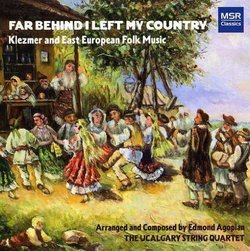 | The UCalgary String Quartet Agopian: Far Behind I Left My Country - Klezmer and East European Folk Music Genre: Classical
It is perhaps the inherent spiritual experience of all immigrants to a new country to have a deep felt, soul-stirring nostalgia for their native land. The country I left behind is Romania, and in particular, my native city... more » |
Larger Image |
CD Details
Synopsis
Product Description
It is perhaps the inherent spiritual experience of all immigrants to a new country to have a deep felt, soul-stirring nostalgia for their native land. The country I left behind is Romania, and in particular, my native city, Constantza - a port city on the western shores of the Black Sea. An ancient city, it was founded by the Greeks, around 550 BC, for commercial exchanges with the local Daco-Getic populations. Perhaps its most famous and colourful citizen was one of the great Roman poets, Ovid. He was exiled to Constantza, then called Tomis, in 8 AD by the Emperor Augustus, for writing Ars Amatoria (The Art of Love), a set of erotic text books. At the crossroads between West and East, Constantza and its surrounding region were traversed and settled by a myriad of nationalities including Tatars, Magyars, Ukrainians, Russians, Jews, Armenians, Greeks, Bulgarians, Gypsies and many others. For over four hundred years (1419-1877) the region was under Ottoman Turkish rule. As a port city, throughout its history Constantza has been a place of commerce, where merchants of different nationalities and religions lived and worked side by side. Old churches, synagogues, and mosques are a testament to the rich, multicultural history of the place. The program on this recording is a reflection of the musical styles and musical languages of different ethnic origins, which have coexisted and have cross-fertilized over the course of history in Constantza, and throughout Eastern Europe. The musical vocabulary ranges from material based on Middle Eastern influenced scales, which incorporate quarter-tone altered pitches, to paraphrases from the Classical music repertoire, to improvisational sections. Klezmer is a Yiddish term which means musician in general, and more specifically, instrumentalists of folk music. Klezmer music denotes the folk musical traditions of Jews from Eastern Europe, in particular Romania, Ukraine, Poland and Russia. With the exception of My Old Homeland, all selections on this recording are based on folk tunes. My Old Homeland is an original composition/improvisation, which incorporates folk like melodies and folk rhythms. The rough tone and dissonances in the introductory rhythm imitate the sound of an instrument found in Romania and other parts of Eastern Europe, called Buhai (bull). In Romania it is used to accompany carolers during New Year s Eve celebrations. The instrument consists of a small bottomless barrel covered with skin. The gruff sound, like the roaring of a bull, is produced by pulling a tuft of hair through the middle of the cover. My first violin teacher, Constantin Anghel, was a Romanian Gypsy who was able to walk comfortably in two musical cultures: the stringent, methodical, Classical violin school, and the "play by ear" folk tradition. It is these two schools of violin playing and musical vocabulary, always a part of my own violin playing, which have inspired these arrangements. The title of this recording comes from the title of an old Hungarian song, sung by a Hungarian peasant and recorded by Bela Bartok in 1906, on a wax phonograph cylinder in the far reaches of the countryside. In 1940, because of the pro-Nazi takeover of the Hungarian government, Bartok decided to leave his country. At his last concert and public appearance at the Music Academy in Budapest, before he left the stage for the final time, in his farewell speech he declared: "I would rather break away from the soil that has nourished me, than remain a witness to its destruction."
Similarly Requested CDs
| Woody Guthrie Nursery Days Genres: Folk, Pop, Children's Music Label: Smithsonian Folkways | |
| Chet Baker Best Of: Chet Baker Sings Genres: Jazz, Pop Label: Blue Note Records | |
| Mike Oldfield Songs of Distant Earth Genres: New Age, Pop, Rock Label: Warner Spec. Mkt. UK | |
| Snog Lies Inc Genres: Alternative Rock, Rock Label: Futurist Records | |

 Track Listings (15) - Disc #1
Track Listings (15) - Disc #1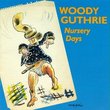
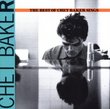
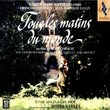
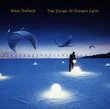

![Seussical [2000 Original Broadway Cast]](https://nationalbookswap.com/cd//m/02/4802/514802.jpg)



